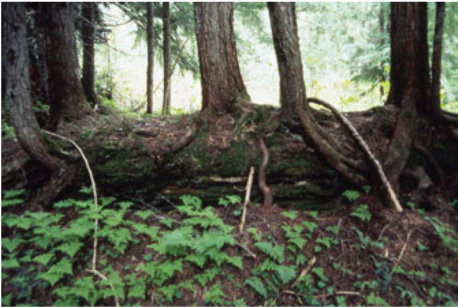The One-Sector Economy
Philip AuerswaldPhilip Auerswald (@auerswald)
October 2, 2015
From linkedin.com
You hear a lot about sectors of the economy. Energy. Health. Transportation. Fine. But what those breakdowns of the economy miss are the deeper structural factors that drive economic vitality.
Think about it. From the sky, the only part of the forest you see is the canopy. GE. Walmart. Exxon. Google. These largest companies dominate our view of economic activity and capture a huge share of economic sunlight. Sometimes we think that these large firms are the economy.
Of course, they're not. There's a lot of activity below the canopy. When we make our way along the floor of the rainforest (Main Street), we see small treesólots of them. That's what we call "small business." Collectively, these small trees actually comprise a lot of biomass. In the United States, the shrub layer of the economy consistently represent roughly 47% of overall employment.
Again, that's all fine. But if you have ever taken a walk in a rainforest, you know that what makes the rainforest vibrant isn't the existence of large trees, or the existence of small trees.
What makes the rainforest vibrant is this:
New trees grow from old trees.
When trees are old, or weakened, or get hit by lightning, they fall over...
Enabling Entrepreneurial Ecosystems
In a paper of mine released yesterday by the Kauffman Foundation, I propose six strategies to enable entrepreneurial ecosystems:
- Favor incumbents less. Policies and regulations that favor existing, dominant companies over entrepreneurial ventures constrain competition and create barriers to entry for new firms. Examples of such regulations include assertive enforcement of non-compete laws, excessively restrictive occupational licensing requirements and regulatory complexity that inhibits contracting. Policymakers should avoid such policies and regulations and work to reduce the barriers to business startup.
- Listen to entrepreneurs. Rather than developing policies abstractly intended to correct "market failures," policymakers should listen to what entrepreneurs have to say about their challenges. That input should be used to develop policies that stimulate idea exploration, product development and increased rates of deal flow.
- Map the ecosystem. Entrepreneurial supporters should create an inventory or graph that indicates who the participants in the ecosystem are and how they are connected. Ecosystem maps can become valuable tools in developing engagement strategies.
- Think big, start small, move fast. This simple rule, long a guiding principle for entrepreneurial ventures, also holds true for successful entrepreneurial ecosystems. The ecosystem should enable the connectivity needed for early success, and then clear the runway for future growth.
- Avoid artificially segmenting your community or your strategies. Entrepreneurs and members of entrepreneurial communities are active participants in creating new companies, investing in and/or advising startups, mentoring entrepreneurs and serving as customers of entrepreneurial companies. Expect participants in entrepreneurial ecosystems to play multiple roles, and make the most of their valuable skillsets.
- Prepare to capitalize on crises. Much like the rotting trunk of a fallen tree feeds the growth of new saplings, economic disruption creates entrepreneurial opportunities. Because disruptions are inevitable in economic and social life, architects of entrepreneurial ecosystems should anticipate them and prepare to make the most of the opportunities they create.
The paper of mine released this week is part of a broader research initiative on entrepreneurial ecosystems at the Kauffman Foundation including this report on "Measuring an Entrepreneurial Ecosystem" authored by my colleagues Dane Stangler and Jordan Bell-Masterson. Our shared conjecture is that ecosystems can provide a conceptual framework within which policymakers can ask relevant questions, envision better approaches, and evaluate resultant outcomes.
You can download my newly released Kauffman Foundation report on "Enabling Entrepreneurial Ecosystems" here.



